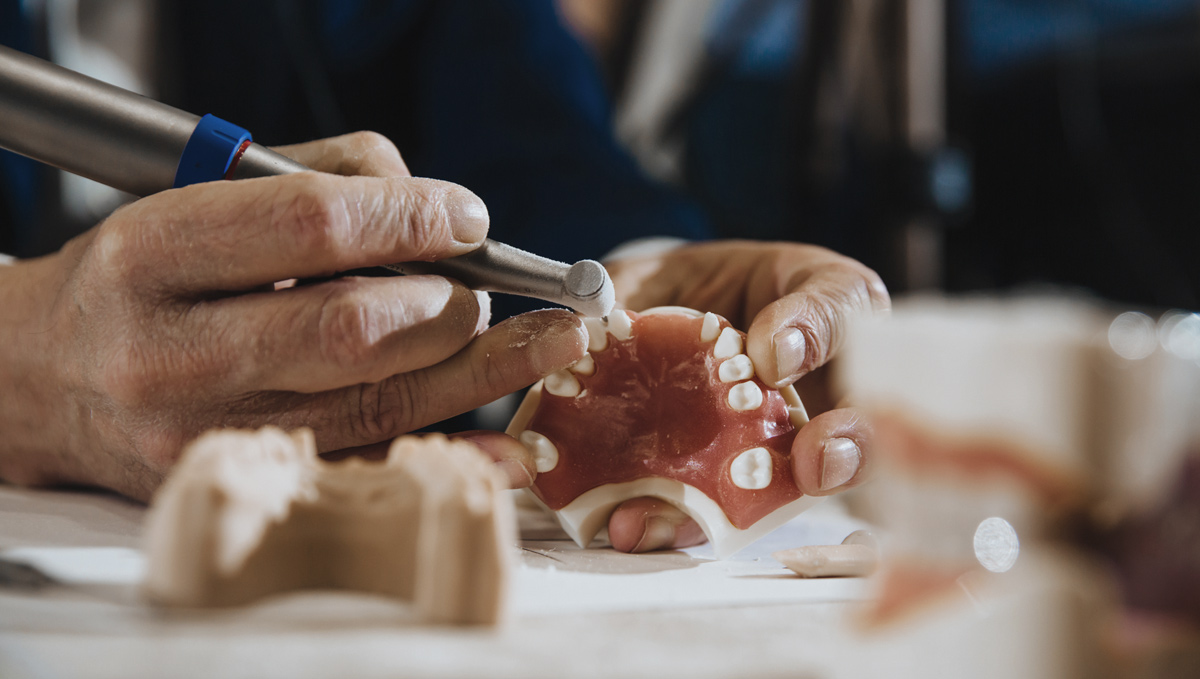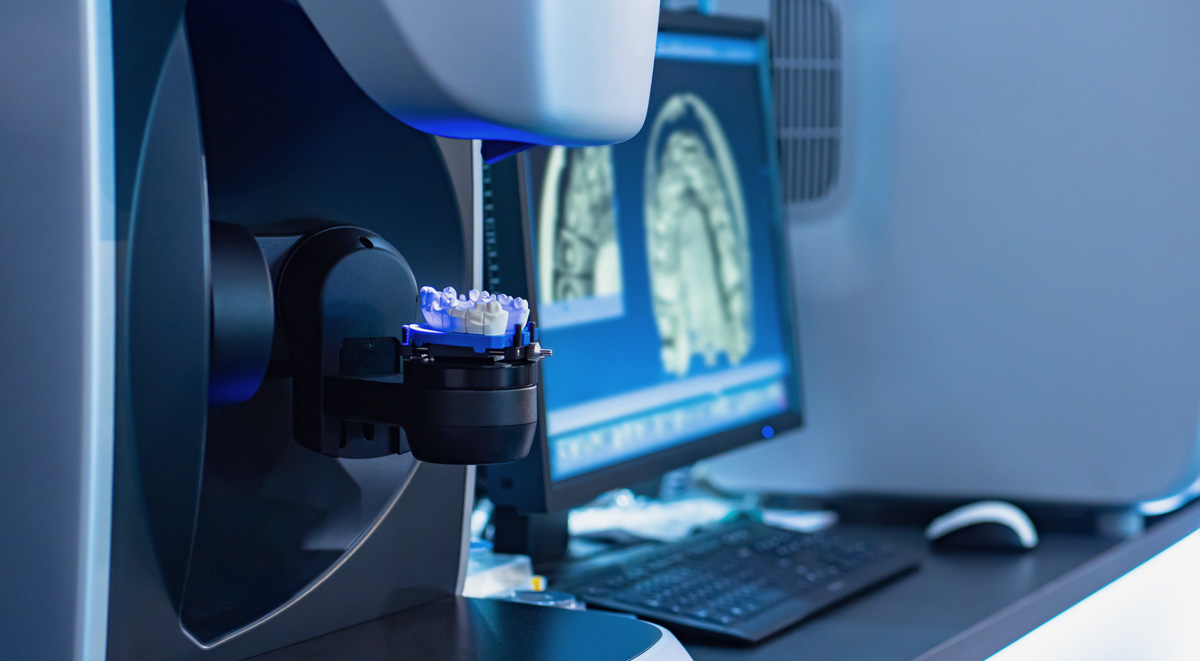If you have missing teeth or are considering a full mouth restoration, dental implants offer a reliable and long-lasting solution to restore your smile and oral health.
The best dental implants UK clinics provide state-of-the-art implant treatment, combining advanced technology with expert care to help you get natural-looking, high-quality teeth that function like your original ones. Whether you need a single implant to replace one tooth or multiple implants to support a full arch, understanding the implant process and what to expect is essential before making this important decision.
This guide covers everything patients need to know about dental implants in the UK, from treatment plans to costs, helping you choose the right dental practice and treatment for your needs. We will also answer some frequently asked questions to help you feel confident and informed every step of the way.
What are dental implants?
How dental implants work
Dental implants are small posts that are surgically placed into the jawbone beneath the gums. These posts act as artificial tooth roots, providing a stable base for crowns, bridges, or dentures.
Over a period of months, the bone grows around the implant in a process called osseointegration, securing it firmly in place. Once healed, the implant supports a new tooth or multiple teeth that restore your ability to chew and smile naturally.
The implant replaces the root of the missing tooth, which is important because it stimulates the jawbone and prevents bone loss. Without this stimulation, the jawbone can shrink over time, affecting your facial structure and making it more difficult to wear dentures or other replacements. The implants fuse directly with the bone, making them stable and secure like natural teeth.
Types of dental implants available in the UK
There are several implant options available depending on the number of missing teeth and your jawbone condition. Single implants replace one tooth at a time, while multiple implants can support a bridge or full mouth restoration.
Some patients may benefit from state-of-the-art implant systems that allow for immediate loading, meaning teeth can be fitted on the same day as surgery. Your dentist or implant specialist will recommend the best option after a thorough consultation.
Implant-supported dentures are another option that can provide a more comfortable and stable fit compared to traditional dentures. These use multiple implants placed strategically in the jawbone to anchor a full arch of replacement teeth. This is better suited for patients with several missing teeth or those looking for a more permanent solution.
Why choosing the right dental implant matters
Choosing the right dental implant treatment is critical to achieve a natural-looking, comfortable, and durable result. Implants that are placed by an experienced dentist or specialist using the latest technology have a higher chance of success and less risk of complications such as bone loss.
The quality of care, materials used, and the dental practice environment all contribute to how well your implants last over time. Getting the right treatment plan tailored to your unique jaw and oral health needs will ensure you regain confidence and function in your mouth with teeth that feel like your own.
Dental implants are designed to feel and function just like natural teeth. If the implant placement is done incorrectly, or if the materials are of poor quality, it can lead to complications including implant failure or discomfort. This can not only impact your oral health but also your confidence and quality of life.

Who is a suitable candidate?
Key health and dental criteria
Most patients with missing teeth and adequate jawbone are suitable for dental implants. However, good oral hygiene, healthy gums, and sufficient bone density are necessary to support the implants long-term. Your dental practice will assess your overall oral health, medical history, and lifestyle factors such as smoking, which can affect healing.
During your consultation, your dentist will take X-rays or 3D scans to evaluate the health of your jawbone and surrounding tissues. These scans help to determine if you have enough bone volume to support the implants or if you may need additional treatments like bone grafting.
Good general health is important for implant success because the healing process depends on your body’s ability to regenerate bone and tissue. Patients with well-controlled medical conditions such as diabetes may still be eligible for implant treatment, but this needs to be discussed with your dental practice. Smoking and heavy alcohol consumption are risk factors that can impair healing and increase the chance of implant failure.
Who may not be suitable for implants
Certain conditions like uncontrolled diabetes, immune disorders, or severe bone loss may affect your suitability. In cases of significant bone loss, additional treatments like bone grafting may be required before implant placement. Your dentist or implant specialist will carry out detailed scans and tests during your consultation to determine if you need any preparatory surgery.
Patients undergoing treatments like chemotherapy or radiotherapy in the head and neck area might need to delay implant surgery, and pregnant women are usually advised to postpone implant treatment until after childbirth.
Sometimes, younger patients whose jawbones are still developing may not be ready for implant treatment until growth is complete. Your dental specialist will carefully evaluate your case and suggest the most appropriate timing for implant placement.
Benefits of dental implants
A long-term solution to missing teeth
Dental implants are considered the best long-term solution to replace missing teeth. Unlike traditional dentures, implants fuse with the jawbone and prevent bone loss, helping maintain the natural structure of your face and jaw.
When a tooth is lost, the bone in the jaw beneath it begins to deteriorate because it no longer receives the stimulation it needs. This process, called bone loss, can affect your facial shape and lead to a sunken appearance over time. Dental implants act like natural tooth roots, providing the necessary stimulation to the jawbone and preserving its density and volume.
Because implants are fixed into the bone, they do not move or slip like dentures, giving you greater confidence when eating, speaking, and smiling. They can last for many years, often decades, with proper care, making them a cost-effective solution in the long run.
Improved function, appearance, and confidence
Implants restore full chewing ability and provide a natural feel unlike removable options. This helps patients enjoy a varied diet and speak clearly. Because implants are designed to look like natural teeth, they also boost confidence by restoring a beautiful smile that lasts for years.
Unlike bridges, implants do not require the alteration of adjacent teeth, preserving your natural teeth. The crowns or prosthetics fitted on implants are custom-made to match the shape, size, and colour of your existing teeth, creating a seamless and natural appearance.
Many patients report an improved quality of life after implant treatment because they no longer worry about loose dentures or missing teeth affecting their social interactions. Being able to eat comfortably and smile freely has a positive impact on self-esteem and overall well-being.
Innovations improving implant durability and comfort
The best dental implant clinics in the UK use advanced technology to reduce surgery time, improve healing, and increase success rates. Modern implant surfaces encourage quicker bone integration, and digital scans help design crowns that fit perfectly for a natural look.
Computer-guided implant placement uses specialised software to plan the exact location, angle, and depth of the implants before surgery. This reduces the risk of damage to surrounding nerves and sinuses and allows for minimally invasive procedures with faster recovery.
Advances in implant surface technology have improved how well and how quickly bone cells attach to the implant. Some implants are now treated with coatings or micro-roughened surfaces to stimulate faster osseointegration, which can shorten the time before your new teeth can be fitted.
Digital impressions using intraoral scanners replace traditional moulds, offering greater accuracy and comfort. This technology allows your dentist to design crowns or dentures that fit precisely and look more natural.
Step-by-step overview of the implant process
Step one: initial consultation
Your initial consultation is where your dentist will examine your mouth, discuss your needs, and take X-rays or 3D scans. This helps plan the treatment and determine if any preparatory procedures like bone grafting are needed.
Step two: implant placement surgery
The surgery is usually done under local anaesthetic to keep you comfortable. The implant is inserted into the jawbone through a small incision in the gums. Sometimes, temporary teeth can be fitted the same day, depending on your treatment plan.
Step three: Healing
After surgery, there is a healing period called osseointegration, which can take between three and six months. During this time, the bone grows around the implant, securing it firmly in place. You will have follow-up appointments to monitor progress and ensure everything is healing well.
Step four: final attachment
Once the implant is fully integrated, the dentist attaches an abutment to connect the implant to your new crown or denture. Finally, a custom-made prosthetic tooth or teeth is fitted, designed to match your natural smile.
What to expect during healing and aftercare
Healing generally takes three to six months. During this time, maintaining good oral hygiene and attending follow-up appointments is crucial. Your dentist will guide you on care, diet restrictions, and how to manage any discomfort.
You may experience some swelling, bruising, or minor pain around the implant site in the first few days. This is normal and can be managed with pain relief and cold compresses. It is important to avoid smoking, hard foods, or anything that may disturb the healing implant.
Keeping your mouth clean is vital to prevent infection. Your dentist will show you how to brush gently around the implant and may recommend antiseptic mouthwashes. Regular dental visits will ensure your implants are monitored and maintained for the long term.

Risks and considerations
Common side effects and complications
Like all surgery, implant placement carries some risks, including infection, swelling, or minor pain. There is also a small chance of implant failure if the bone does not integrate properly. Choosing an experienced dental practice that uses high-quality materials reduces these risks.
Other potential complications include nerve damage causing numbness or tingling, sinus problems if implants are placed in the upper jaw, or gum recession around the implant. These are rare when implants are placed by skilled specialists following careful planning.
How to reduce the risk of implant failure
Following your dentist’s instructions on care, avoiding smoking, and managing any underlying health conditions helps promote successful healing. Regular check-ups will ensure your implants remain healthy and long-lasting.
Good oral hygiene is key to preventing peri-implantitis, an infection around the implant that can cause bone loss and failure. Brushing twice a day, flossing, and professional cleanings are necessary.
If you have concerns about healing or notice symptoms like persistent pain, swelling, or looseness in the implant, speak to your dentist immediately. Early intervention can prevent more serious problems.
Choosing the right dental implant provider
How to compare dental implant clinics
When choosing where to get your implants, look for clinics with strong reputations, experienced dentists or specialists, and positive patient reviews. You can speak to multiple clinics to compare their treatment plans, technology used, and aftercare support.
Visiting clinics for a consultation allows you to meet the team, see the facilities, and get a feel for the care they offer. Ask about their experience with full mouth restorations and the technology they use for implant placement.
What makes a provider trustworthy: qualifications, experience, and care standards
A trusted provider will have accredited specialists with years of implant surgery experience. The best clinics invest in advanced technology such as 3D imaging and guided surgery to improve outcomes. They also offer personalised treatment plans, clear communication, and ongoing patient care.
Look for clinics registered with recognised professional bodies, as well as ones where staff keep up with the latest advances in implantology.
A reputable dental practice will provide detailed information on the procedure, risks, and aftercare, ensuring you understand every step. Transparency about costs and finance options is also a sign of a provider you can trust.
The role of a dental laboratory in making dental implants
Crafting custom implant restorations
A dental laboratory is where skilled technicians create the custom crowns, bridges, or dentures that fit onto your dental implants. After your dentist takes impressions or digital scans of your mouth, the laboratory uses advanced materials and technology like CAD/CAM to design and manufacture restorations that match your natural teeth in shape, size, and colour.
These restorations are made from durable materials such as ceramics or zirconia to ensure they look natural and last long, helping you regain a confident smile and comfortable bite.
Collaboration between dentist and laboratory for long-lasting results
Successful implant treatment depends on close communication between your dentist and the dental laboratory. Your dentist provides the lab with detailed instructions and feedback about your needs, which the lab then uses to create precise restorations.
This teamwork ensures a perfect fit that supports oral health by reducing stress on the implant and surrounding bone, preventing complications like bone loss. High-quality restorations made by the lab contribute significantly to the long-term success and durability of your dental implants.
GoDigital Dental: your dentist’s partner for restorations
At GoDigital Dental, we understand that dental implants are more than just a treatment; they are life-changing for patients with missing teeth. As a trusted partner to dental practices across the UK, our mission is to provide the highest quality restorations that combine precision, durability, and a natural appearance. We craft each crown, bridge, or full mouth restoration with meticulous attention to detail, using the latest digital technology and advanced materials to ensure a perfect fit and a beautiful, long-lasting result.
We work closely with dentists and implant specialists to support every stage of the implant process. Our digital workflows allow us to collaborate seamlessly to produce restorations that match your unique needs from the digital impressions that are provided to us. Communication is key, and we pride ourselves on our ability to provide expert advice and quick turnaround times that help dental clinics deliver efficient and confident care.
By choosing GoDigital Dental, your dentist can offer you a truly state-of-the-art solution, combining advanced technology with skilled craftsmanship. We are dedicated to helping dentists restore smiles and improve oral health, providing implant restorations that you can trust to look natural, feel comfortable, and last for many years.
Get started on your journey to dental implants today!
Choosing the best dental implants is an important step towards restoring your smile, confidence, and oral health. With the right expert team, advanced technology, and a personalised treatment plan, you can enjoy long-lasting teeth that look, feel, and function like your own. Whether you need to replace a single tooth or require a full mouth restoration, dental implants provide a reliable and high-quality solution tailored to your needs.
Taking that first step starts with booking a consultation at a trusted dental practice. During this visit, you can discuss your options, ask questions, and receive a detailed treatment plan designed just for you. Remember, expert care and a reputable dental laboratory partner like GoDigital Dental can make all the difference in achieving a successful and comfortable implant experience.
Don’t let missing teeth hold you back any longer. Speak to an experienced dentist today and get ready to enjoy the many benefits of dental implants, helping you smile, eat, and live with confidence once again.
FAQs
Is the dental implant procedure painful?
Most patients are surprised at how little pain they feel during a dental implant procedure. The treatment is usually carried out with local anaesthetic, so you will not feel pain while the implant is being placed in your jaw. You may feel some pressure, but it should not be uncomfortable.
After the procedure, it is normal to have mild swelling or soreness for a few days. This can usually be managed with pain relief recommended by your dentist. With proper care and follow-up, most patients find recovery easier than they expected and are comfortable within a short time.
What are the alternatives to dental implants?
If dental implants are not the right option for you, there are other treatments that can replace missing teeth. One common choice is a dental bridge, which uses the teeth on either side of the gap to support a false tooth.
Another option is removable dentures, which can replace one tooth, several teeth, or even a full mouth of missing teeth. Modern dentures are lighter and more natural-looking than in the past.
Your dentist will explain which solution is best for your needs, taking into account your oral health, budget, and how long you want the treatment to last.
How do dental labs ensure the colour of the implant crown matches natural teeth?
Dental labs use a careful process to make sure your implant crown looks as natural as possible. First, your dentist records the exact shade of your natural teeth using a shade guide or digital scanner.
This information is sent to the dental lab, where skilled technicians match the colour using high-quality materials like ceramic or zirconia. They layer and adjust the crown so that it reflects light in the same way as your natural teeth.
Before the crown is fitted, your dentist will also check the match and make small changes if needed to ensure a seamless smile.
Can dental implants fail?
Dental implants have a very high success rate, but like any treatment, there is a small chance they can fail. This may happen if the implant does not bond properly with the jawbone or if there is an infection around the implant site. Smoking, poor oral hygiene, or certain health conditions can increase the risk.
Signs of failure may include pain, swelling, or the implant feeling loose. Regular check-ups with your dentist, good daily care, and following advice after surgery greatly reduce these risks. With the right care, most dental implants last for many years without problems.
Does healthcare insurance cover the cost of implants?
In most cases, standard healthcare insurance does not cover the full cost of dental implants, as they are often seen as a specialist or cosmetic treatment. Some private dental insurance plans may contribute towards part of the cost, such as consultations, X-rays, or the crown placed on the implant.
Cover varies depending on the provider and level of plan, so it is always best to check directly with your insurer. Many dental practices also offer finance options to spread payments over time, which can make implants more affordable for patients who want a long-lasting solution for missing teeth.
Will I be able to eat after the procedure?
Yes, you will be able to eat after having dental implants, but you may need to make some changes at first. Right after the procedure, your dentist will usually advise you to stick to soft foods such as soups, yoghurt, or mashed vegetables while the implant area begins to heal. Avoid hot, hard, or chewy foods that could disturb the implant site.
As the weeks pass and healing continues, you can gradually return to your normal diet. Once your final crown or restoration is fitted, you should be able to eat comfortably, just like with natural teeth.
How does a dental lab communicate with the dentist?
A dental lab and dentist work closely together to make sure dental implants and restorations fit well and look natural. Communication often begins when the dentist sends digital scans or impressions of the patient’s mouth to the lab. Along with these, the dentist includes details such as shade, shape, and treatment requirements.
The lab then designs and creates the crown, bridge, or denture and may send updates or questions if adjustments are needed. Many modern labs use digital systems for fast and accurate communication, helping dentists provide patients with precise, high-quality restorations in less time.
Can I get dental implants if I have receding gums or bone loss?
Yes, many patients with receding gums or bone loss can still have dental implants, but some may need extra treatment first. Healthy gums and enough bone are important for supporting implants in the long run. If there is not enough bone, your dentist may suggest a bone graft to strengthen the jaw before implant placement.
For gum recession, special care may be needed to protect the implant and improve appearance. Your dentist will carry out scans and a full check of your mouth to create a treatment plan that suits your needs and gives the best chance of success.
Does smoking affect dental implants?
Smoking can affect the success of dental implants. Nicotine and other chemicals in cigarettes reduce blood flow to the gums and jawbone, which can slow healing after implant surgery. This makes it more likely for the implant to fail or for complications such as infection or bone loss to occur.
Dentists usually advise patients to stop smoking before and after implant placement to improve healing and long-term success. Even reducing smoking can help, but quitting completely gives the best chance for implants to integrate properly and last for many years while maintaining healthy gums and bone.
Can dental labs assist with treatment planning?
Dental labs play an important role in treatment planning for dental implants. They work closely with dentists to design crowns, bridges, or full mouth restorations that fit precisely and look natural. Using digital scans and advanced software, labs can help visualise how the final teeth will appear and advise on the best materials or shapes to suit the patient’s mouth.
This collaboration allows dentists to create an accurate treatment plan and plan the implant placement more effectively. By involving the lab early, patients benefit from restorations that are both functional and aesthetically pleasing.



